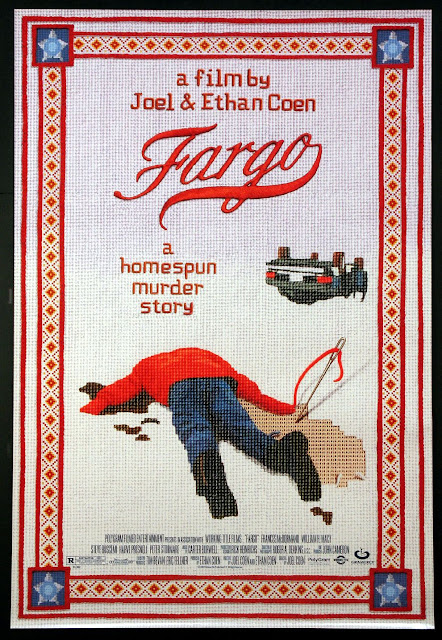As I said to Jamie when we left the movie "Normally I get annoyed when it's clear the filmmakers expect you to watch the movie more than once to 'get it'." It's a ridiculous value proposition. And I am not talking about returning to a mystery movie once you've seen how it all plays out so you can see the pieces working together before the big reveal. I'm referring to a brand of filmmaking that works extra hard to show how damn smart they are that they forget to tell a compelling story and instead leave a breadcrumb trail for a message that, ultimately, you wonder why they felt they needed to make it so complex you needed a Lil' Oprhan Annie Decoder Ring to decipher it, and it still wound up being "Drink your Ovaltine."
But complexity in messaging has always been the case with the Coen Bros., going especially back to
Barton Fink and playing out in even some of their most commercially viable films. There's always a Mike Yanagita scene, a curve ball leaving you with more questions than answers or at least begging to make you look deeper, and, if you sort it out, it unlocks the picture. After all, the Coen Bros. do not make mistakes. They do not do extraneous. That scene is saying something.
Now, I have my ideas about what the final scene means in
Barton Fink, but I would always, always be willing to hear someone else explain it to me, because as much as I like that movie and like what it has to say about the assumptions and pretensions of the creative person, I can't quite nail that last scene on the beach. I have my ideas, but I am willing to be convinced otherwise.
Sometimes I have a lot of patience for what the Coen Bros. are up to (
Inside Llewyn Davis), and sometimes I don't (
The Man Who Wasn't There). And, frankly, while I enjoyed
The Big Lebowski's screwball atmosphere the first time I saw it, it was the second time I watched it that the pieces fell in place and I felt like I actually "got it". Which, of course, makes me want to re-watch
The Man Who Wasn't There despite the fact I can't really seem to find it. Maybe I forgive them because it doesn't feel so much like pretension as a solid movie they're putting out there, one where they offer everything up, and you can try to keep up. And it's okay to have that nagging feeling that maybe you just saw something that you didn't entirely get on the first round. With them, I really don't mind giving it another shot.
Hail, Caesar! (2016) was marketed as a sort of slapsticky comedy, something the Coens certainly did back in the
Raising Arizona days and which they embraced mightily in
The Hudsucker Proxy (a movie I will defend with punches, if necessary), riffing on post WWII-era Hollywood and the innate charm, goofiness and endless scandal that were part of the era.
But this is not that movie.













